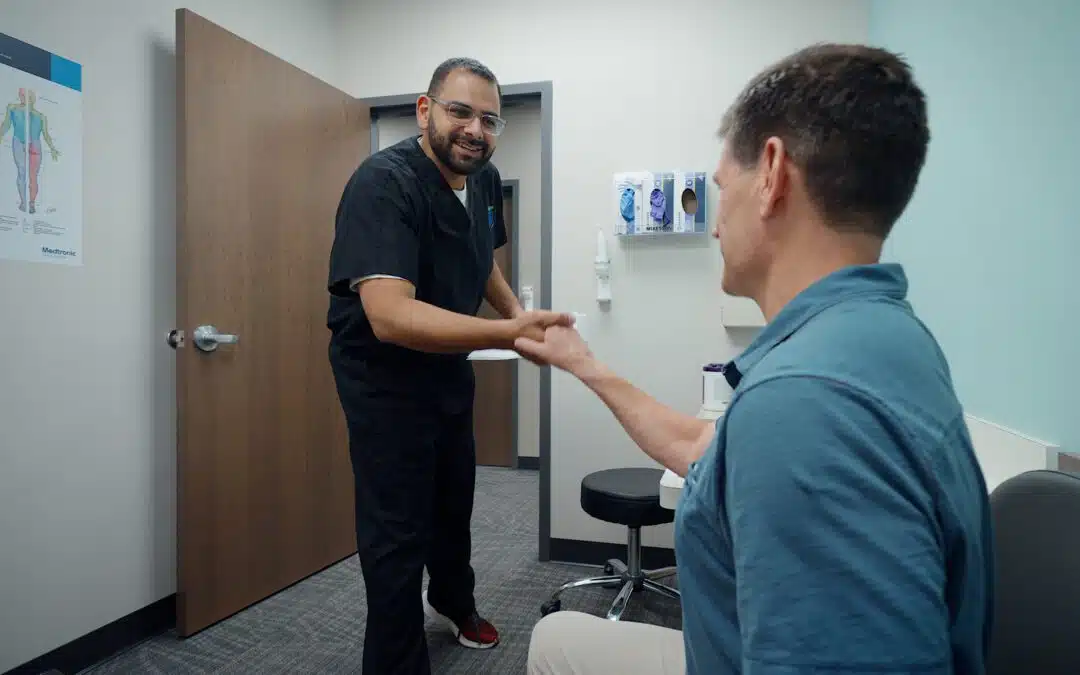You don’t have to hurt—find the resources you need to successfully manage chronic pain
It’s normal—and unavoidable—to experience pain in your life. From everyday bumps and bruises to acute injury events, you will hurt here and there, and those incidents can usually be managed with either common-sense selfcare or by visiting the appropriate specialists.
But what happens when your pain becomes chronic, or has no clear, easily identifiable cause? It’s hard to know who to talk to when your pain needs long-term treatment. What are your resources to manage chronic pain?
What is chronic pain?
Chronic pain usually follows one of two paths—it’s either pain associated with a long-term health condition, like arthritis, or it’s prolonged pain for more than six months. Some people suffer from chronic pain without being aware of any particular illness or injury they can attribute it to (e.g. CRPS, fibromyalgia).
According to a National Health Interview Survey, about 20% of US adults have experienced chronic pain, and almost 8% had high impact chronic pain, wherein their life or work activities were limited by the issue.
How do I manage my chronic pain?
First, start by talking with your primary provider. Because of their awareness of your medical history, they’ll be the best place to begin—most treatment plans address both reducing pain as well as increasing support for your daily life to function around the pain. Some treatments involve medications, some don’t, and your existing doctor will know the best plan of action for your specific situation.
That said, once you’ve seen your current healthcare professional, it may also be a good idea to get a second opinion. While knowledge of your health background can be invaluable, a fresh perspective can also be worth considering as you move forward, especially if it’s someone who specializes in pain. You can ask your doctor for a referral to a pain management specialist or self-refer for a consultation. These specialists are medical professionals who have had extra training specifically in pain management, and they’re often found in areas of practice like anesthesiology, physical medicine and rehabilitation, rheumatology, or neurology.
What can I expect from pain management treatment?
Once you’ve recruited a pain management specialist like those at iSpine Clinics, you’ll likely be treated in a series of escalating steps which all start with a consultation, review of your medical history and any related tests or procedures, as well as a thorough physical examination.
Conservative Treatments – medication and non-invasive therapies
At iSpine Clinics, we can help determine if physical therapy may help you manage your chronic pain. Our physical and occupational therapists at our rehabilitative clinics work with many patients to help improve their function, strength, range of motion, and endurance utilizing MedX equipment. Our pain care specialists may prescribe medications like anti-inflammatories, muscle relaxers, and potentially some anti-depressants, which have been shown to have a positive impact on chronic pain.
Advanced procedures and injections
If relief isn’t reached in the first stage, your healthcare practitioner may advance to injections like nerve blocks or spinal injections, which can numb pain for an extended period of time while some patients undergo physical therapy or rehabilitation to work to strengthen your body. In some cases, you may be a candidate for radiofrequency ablation. Radiofrequency ablation applies heat or chemical agents to the nerves, blocking pain signals.
Minimally invasive implants – an option before surgery
For some patients, their pain management treatment may involve a surgical implant or spinal cord stimulation. An implant can deliver therapy directly to the source of your pain in your spinal cord. A stimulator can disrupt or block pain signals before they reach the brain, which can significantly help bring down the level of pain some people experience, making them less reliant on opioids that can cause other long-term effects.
What is the prognosis for chronic pain?
Because chronic pain can have so many causes, there’s not one hard and fast cure. It can, however, be successfully managed, usually through a combination of the previously discussed strategies (among others you can discuss with your healthcare provider). According to the Cleveland Clinic, current chronic pain treatments can reduce a person’s pain score by about 30%–enough to make a marked difference in overall satisfaction and quality of life. As researchers continue to study pain disorders, and as we advance our understanding of neurology and the human body overall, we can expect to see greater strides in chronic pain management. You can also help minimize pain with lifestyle choices, such as avoiding smoking, building rest into your daily routine, eating a healthy diet and exercising as much as is possible, and even joining a support group for chronic pain sufferers (your pain management clinic may even host one!).
If you’re experiencing pain, it’s important to know you have options. Talk with your doctor, or set up a Interventional Pain Consultation, where our team of experts will learn more about your lifestyle, health history, and any major medical moments and recommend a plan of action.


